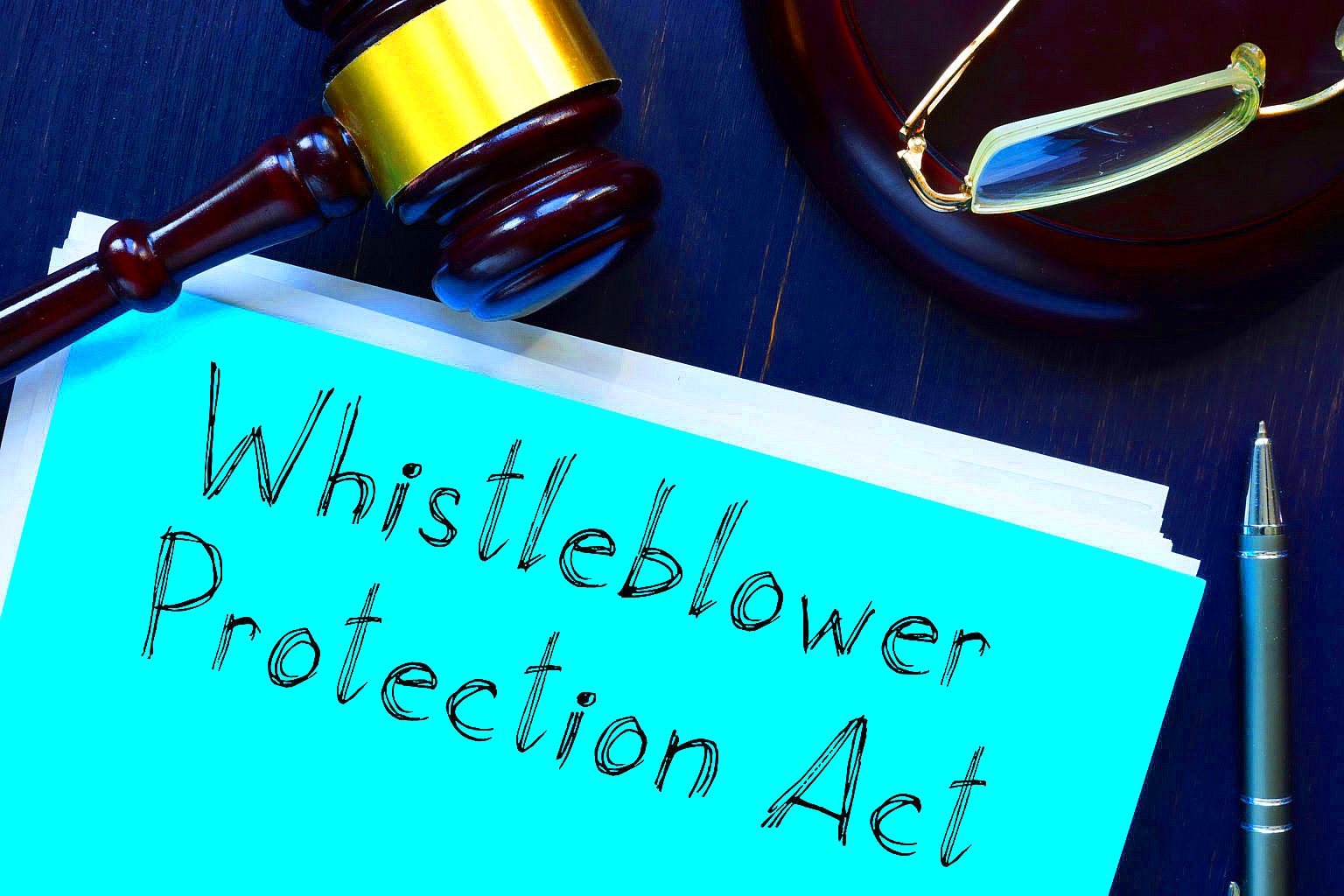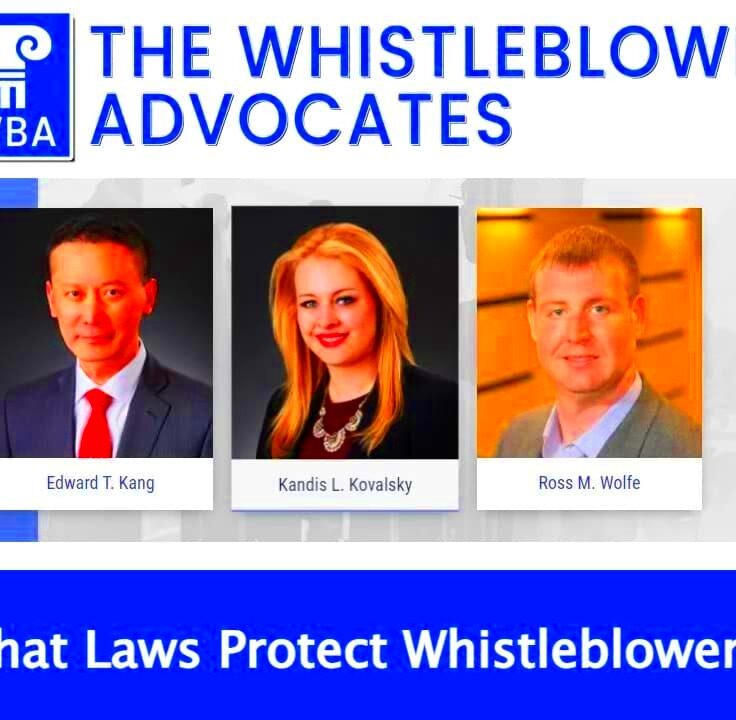North Carolina Whistleblower Law and Its Protection for Employees
North Carolina Whistleblower Law is designed to protect employees who report illegal activities or unethical practices by their employers. This law encourages transparency in the workplace and ensures that employees can speak out without fear of retaliation. By offering these protections, North Carolina aims to maintain fair working conditions and uphold the rights of workers. Whether it’s exposing fraud, environmental violations, or safety concerns, the law provides a shield for those who act in the public interest.
How Whistleblower Law Protects Employees in North Carolina

The North Carolina Whistleblower Law provides specific protections for employees who report wrongdoing. Once an employee has made a valid complaint, the law ensures they are safeguarded against employer retaliation, such as termination, demotion, or harassment. Here are the main protections offered:
- Job Security: Employees cannot be fired or demoted for reporting illegal activities.
- No Retaliation: Employers are prohibited from punishing employees in any way after a whistleblowing report is made.
- Confidentiality: Whistleblowers can request that their identity remains confidential during investigations.
If an employer violates these protections, the employee has the right to file a complaint or lawsuit to seek damages, including compensation for lost wages and emotional distress.
Types of Whistleblowing Activities Covered Under North Carolina Law
Several types of activities are covered under North Carolina’s whistleblower protections. These activities typically involve reporting violations that pose risks to the public or break state and federal laws. Common whistleblowing activities include:
- Fraud: Reporting financial mismanagement, embezzlement, or fraudulent practices by the employer.
- Safety Violations: Disclosing unsafe working conditions or violations of workplace safety regulations, such as OSHA violations.
- Environmental Violations: Reporting environmental hazards or breaches of environmental protection laws.
- Discrimination or Harassment: Reporting illegal workplace discrimination or harassment based on race, gender, or other protected statuses.
- Public Health and Safety Concerns: Revealing risks to public health caused by employer negligence.
Employees can report these activities to government agencies, internal authorities, or law enforcement, knowing that the law is there to protect them.
Steps Employees Can Take When Reporting Violations
If you’re an employee in North Carolina and you’ve witnessed illegal or unethical behavior at work, knowing the right steps to take when reporting it is crucial. The process can feel intimidating, but following the correct procedures can help ensure that your claim is taken seriously and that you are protected throughout the process. Here are the key steps employees should follow:
- Document the Violation: Collect any evidence that supports your claim, such as emails, reports, or witness statements. Having detailed documentation will strengthen your case.
- Report Internally: Many companies have specific procedures for reporting violations. Try reporting the issue through internal channels first, such as your supervisor, HR department, or ethics committee.
- Contact External Authorities: If internal reporting doesn’t work or if the violation is severe, you can reach out to state or federal agencies. This could include organizations like the Occupational Safety and Health Administration (OSHA) or the Environmental Protection Agency (EPA).
- File a Formal Complaint: Depending on the type of violation, you may need to file a formal complaint with the appropriate government agency.
- Consult with a Lawyer: It’s wise to consult with an attorney who specializes in employment law to ensure your rights are fully protected during the process.
Taking these steps can help ensure that your complaint is handled professionally and that you remain protected under whistleblower laws.
Legal Protections Against Retaliation for Whistleblowers
North Carolina’s whistleblower law offers robust protections for employees who report violations, ensuring they are not punished for doing the right thing. The law specifically prohibits employers from retaliating against employees who report misconduct. Retaliation can take many forms, and it’s important to know your rights in case you face any of the following actions:
- Termination: Firing an employee for whistleblowing is illegal under North Carolina law.
- Demotion: Employers cannot reduce your rank or pay as a result of whistleblowing.
- Harassment or Intimidation: Any hostile work environment created because of your report is a violation of your legal rights.
- Reassignment: Moving you to a less desirable position or changing your job responsibilities unfairly is considered retaliation.
Whistleblowers are also protected from any form of blacklisting, meaning your employer cannot damage your professional reputation or prevent you from getting future jobs in your field. If you experience any form of retaliation, you can file a lawsuit against your employer to recover lost wages, damages, and even reinstatement of your job.
Rights of Employees Filing a Whistleblower Complaint
Employees who file a whistleblower complaint in North Carolina have specific rights designed to protect them throughout the process. Knowing these rights can help ensure that you are treated fairly and that your complaint is taken seriously. These rights include:
- Right to Protection from Retaliation: As mentioned earlier, whistleblowers are protected against retaliation, including firing, demotion, and harassment.
- Right to Confidentiality: You have the right to request that your identity remain confidential during the investigation, which can help protect you from potential workplace backlash.
- Right to Due Process: If your employer takes any adverse action against you after filing a complaint, you have the right to challenge those actions through legal channels.
- Right to Compensation: If you suffer retaliation, you may be entitled to compensation for lost wages, emotional distress, and other damages.
If your complaint is valid, you may also be eligible for whistleblower rewards in cases where your report leads to the recovery of government funds or uncovering large-scale fraud. Understanding your rights and standing firm in them is crucial for employees navigating this process.
Penalties for Employers Who Retaliate Against Whistleblowers
Employers in North Carolina who retaliate against whistleblowers face serious legal consequences. The law strictly prohibits retaliation in any form, whether it’s firing, demoting, or harassing an employee for reporting illegal activities. These penalties are in place to ensure that employees feel safe speaking up. If an employer violates whistleblower protection laws, they may face both civil and criminal penalties, depending on the severity of the offense.
Common penalties include:
- Monetary Damages: Employers can be ordered to pay compensation for lost wages, benefits, and emotional distress caused by retaliation.
- Reinstatement: In cases where an employee is wrongfully terminated, the court may order the employer to reinstate the employee to their former position.
- Back Pay: Employers may be required to provide back pay for the period the employee was out of work due to wrongful termination or demotion.
- Punitive Damages: In some cases, courts may award additional punitive damages to punish employers for particularly egregious behavior.
In addition to these financial penalties, employers may also suffer reputational damage, which can affect their business. Moreover, if federal laws are involved, employers might face federal investigations, leading to harsher penalties and stricter oversight.
How to Seek Legal Help as a Whistleblower in North Carolina
Seeking legal assistance is one of the most important steps a whistleblower can take. In North Carolina, navigating the legal process can be complicated, and having a skilled attorney by your side can make all the difference. Here’s how you can go about finding legal help:
- Consult an Employment Lawyer: Look for an attorney who specializes in employment law and has experience with whistleblower cases. They will help you understand your rights and guide you through the legal process.
- Provide Detailed Documentation: Gather all evidence, including emails, witness statements, and any reports you’ve made. This will help your attorney build a strong case.
- File a Complaint: With legal assistance, you can file a formal whistleblower complaint with the appropriate state or federal agency. Your lawyer can help you navigate this step, ensuring all required documents are filed correctly.
- Pursue Legal Action: If your employer retaliates, your attorney can file a lawsuit on your behalf to recover damages and seek compensation.
Finding an experienced lawyer early in the process will help ensure your rights are protected and your case is handled with care.
Conclusion on Whistleblower Protections in North Carolina
North Carolina’s whistleblower laws provide essential protections for employees who have the courage to report wrongdoing. Whether you’re exposing fraud, safety violations, or other illegal activities, the law ensures that you are shielded from retaliation. Employers who violate these laws face significant penalties, including monetary damages, reinstatement orders, and potential federal consequences.
For employees, knowing your rights and understanding the process can give you the confidence to report issues safely. Legal support is also available to guide you through every step, ensuring that your actions lead to positive change without risking your livelihood. The protection provided by whistleblower laws helps maintain integrity in the workplace, benefiting not just the whistleblower but society as a whole.
Frequently Asked Questions About North Carolina Whistleblower Law
1. Who is protected under North Carolina’s whistleblower law?
Employees working in both the private and public sectors may be protected under North Carolina’s whistleblower law. However, protections may vary based on the specific industry or employer type. For example, public employees, such as government workers, are explicitly covered by the state’s whistleblower statutes, while private-sector workers may be protected under other federal or state laws depending on the violation reported.
2. What kinds of violations can I report under whistleblower law?
The law covers a wide range of illegal activities, including fraud, safety violations, environmental breaches, and unlawful discrimination. Whistleblowers can report issues that threaten public safety, health, or violate state and federal regulations.
- Fraud and financial misconduct
- Unsafe working conditions
- Environmental law violations
- Discrimination and harassment
- Public health risks
3. How do I report a violation?
You can report violations through internal channels like your employer’s human resources department or through external channels, such as regulatory bodies (e.g., OSHA, EPA) or state agencies. You may also seek legal assistance to ensure you follow the correct procedures.
4. What happens if my employer retaliates against me?
If you experience retaliation, such as being fired, demoted, or harassed after reporting a violation, you can file a lawsuit against your employer. North Carolina’s whistleblower law allows employees to recover damages, back pay, and potentially even reinstatement if retaliation occurs.
5. Can my identity be kept confidential during the investigation?
Yes, whistleblowers have the right to request confidentiality. This means that your identity may not be disclosed during the investigation process unless it becomes necessary for legal reasons or court proceedings.


